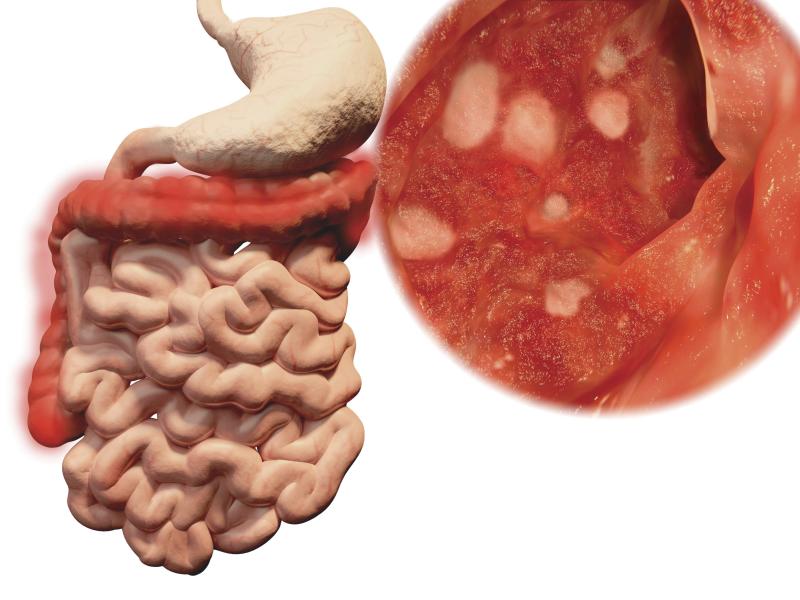
Short-term efficacy appears to be higher with tofacitinib (TOF) than with vedolizumab (VDZ) in the treatment of patients with ulcerative colitis (UC), regardless of disease severity and previous biologics use, a recent study has shown.
This retrospective single-centre observation study included UC patients who initiated TOF (n=38) or VDZ (n=28) from May 2018 to May 2019. Short-term efficacy was evaluated by remission rate, defined as a partial Mayo score (pMayo) of ≤1 point, and response rate, defined as a pMayo ≤1 point or a decrease of ≥3 points, at 2 and 6 weeks after treatment initiation.
The authors also examined the clinical background factors contributing to the efficacy at 6 weeks and evaluated the side effects in the mean observation period (TOF: 133.6 days; VDZ: 74.6 days).
Clinical background factors were not significantly different between the TOF and VDZ groups in terms of clinical duration (10.7 vs 7.9 years), relapse-remission type (71.1 percent vs 64.3 percent) and all colitis type (63.2 percent vs 60.7 percent).
However, the TOF group had more severe UC (average pMAYO, 5.7 vs 4.0 points; p=0.002; average endoscopic Mayo score [eMayo], 2.58 vs 1.82; p=0.002; average UC endoscopic index of severity, 4.34 vs 2.71; p=0.001) and fewer bio-naive cases (23.7 percent vs 50.0 percent; p=0.027).
The remission rates were comparable at weeks 2 (23.7 percent vs 28.5 percent; p=0.654) and 6 (39.4 percent vs 32.1 percent; p=0.611), while the response rates were higher for the TOF group at weeks 2 (50.0 percent vs 35.7 percent; p=0.248) and 6 (63.2 percent vs 35.7 percent; p=0.027).
No serious side effects were reported. None of the patients in both groups discontinued treatment due to side effects.
“In the near future, further head-to-head study is required to extend these findings and determine the appropriate therapeutic options in terms of the mid- to long-term efficacy and safety,” the authors said.